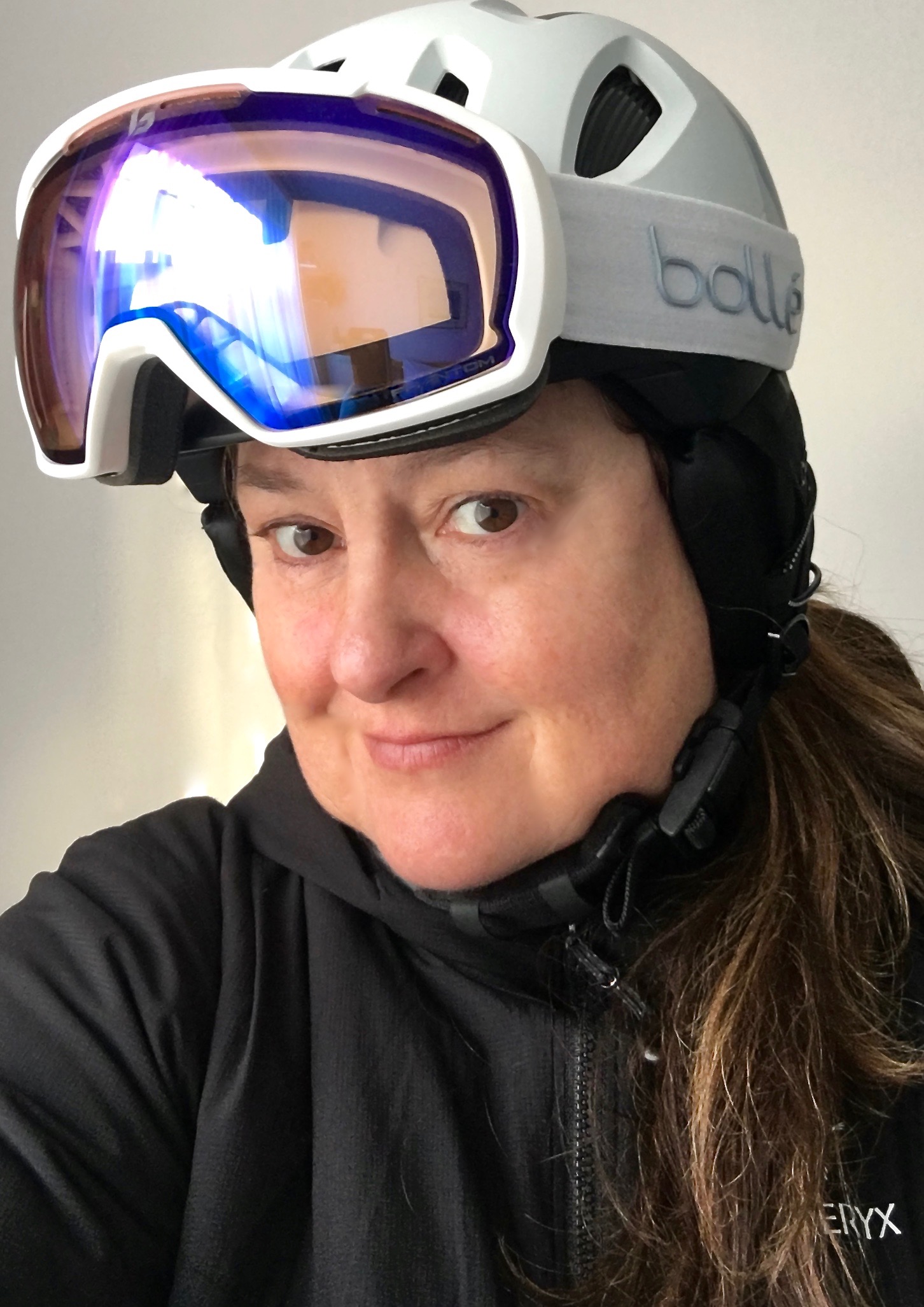 Lisa Young (left) met up with British slalom skier and Winter Olympian Dave ‘The Rocket’ Ryding who recently made history by becoming the first GB skier to win a world cup race. She joined him on the slopes of Obergurgl in Austria’s Tirol region just hours after he was on the world cup podium again after finishing third in Garmisch (27 February 2022). Lisa chatted with the 35-year-old on a sun-drenched terrace at the Hohe Mut Alm piste-side restaurant, at the top of the Obergurgl’s Hohe Mut Bahn II gondola. In a one-on-one interview she spoke to ‘The Rocket’ about what he does when he is not skiing, his recent Beijing Olympic experience, wedding bells, ski racing future, his café, and life after skiing.
Lisa Young (left) met up with British slalom skier and Winter Olympian Dave ‘The Rocket’ Ryding who recently made history by becoming the first GB skier to win a world cup race. She joined him on the slopes of Obergurgl in Austria’s Tirol region just hours after he was on the world cup podium again after finishing third in Garmisch (27 February 2022). Lisa chatted with the 35-year-old on a sun-drenched terrace at the Hohe Mut Alm piste-side restaurant, at the top of the Obergurgl’s Hohe Mut Bahn II gondola. In a one-on-one interview she spoke to ‘The Rocket’ about what he does when he is not skiing, his recent Beijing Olympic experience, wedding bells, ski racing future, his café, and life after skiing.
https://www.scarpellino.com/ckaxa6j7k Let’s start at the beginning… where are you from?
I’m from Northwest England from a little village called Tarleton, near Preston in Lancashire, where I now live with my fiancé, Mandy. I grew up in a little village called Bretherton, next to Tarleton. We moved to Tarleton about five years ago. We have a place there, and that’s where we’ve chosen to live.
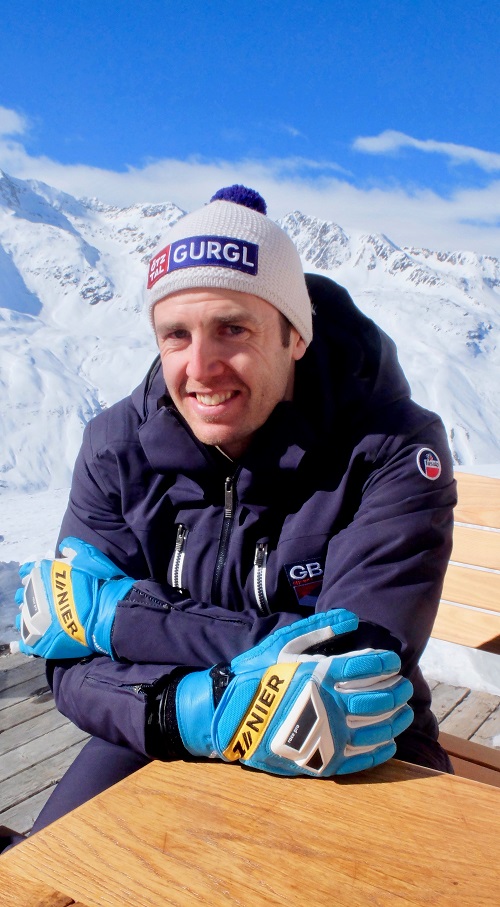
https://ottawaphotographer.com/wp8pmvyfo https://www.salernoformazione.com/ey43ktwhmi Dave ‘The Rocket’ Ryding. PHOTO: ©Lisa Young 2022
https://chemxtree.com/0axl0q3h https://hazenfoundation.org/jim9pcam How old were you when you started skiing?
https://www.wefairplay.org/2025/03/11/r68x7yc I started at Pendle Ski slope on plastic when I was 6 ½ years old. I really didn’t do much snow skiing until I was 13 years old and that was through doing well in a dry slope race. As a result, the organisers took us away for a week’s skiing on snow, it was called the English School’s Team and it that trip opened my eyes to the real world of ski racing. I later joined the Kandahar Ski Club.
https://www.scarpellino.com/d36c83s https://www.mdifitness.com/3ggm34ilja I understand your wedding plans were postponed due to Covid?
Order Zolpidem Tartrate Online Mandy, my fiancé and I were supposed to get married in May two years ago, right here at the Hohe Mut Alm, on this terrace, next to the slopes in Obergurgl. Instead, we are now getting married in the UK in May this year, 40-minutes away from our home and playing it safe with all the travelling and the unpredictable Covid issues.
Did you have to separate marriage plans to be focussing on the Olympics and did it effect your training?
https://www.mdifitness.com/qim9egy Thankfully I haven’t lifted a finger in the whole wedding planning. Mandy (Dirkzwager), my fiancée, is from the Netherlands and she moved over to the UK five years ago. Mandy is very understanding of my situation because she was an Alpine downhill ski racer too and knows and understands the lifestyle and the strain it can put on you. I am so focused out here training and racing that I almost don’t have the energy to do anything else, but I’m sure I’ll have some wedding jobs to do when I get back to England.
https://yourartbeat.net/2025/03/11/xzwffxk Buy Zolpidem During the Olympics were you able to stay in contact with family?
https://www.salernoformazione.com/dl8w5biwru We had WhatsApp and Facetime, and they also had social media for the athletes, you could use all of it to stay in touch. We didn’t have Instagram because I don’t think they have it in China.
https://www.plantillaslago.com/xxuikjzd6 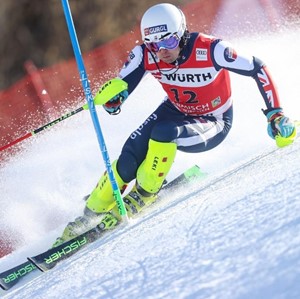 I hear you bought a café.
I hear you bought a café.
Ambien Uk Buy Yes. Three years ago, we took on a café in our village, We just jumped straight in and had to quickly learn about running the business. I had no clue at the start, but Mandy had some experience in hospitality back in the Netherlands and so we thought why not give it a go.
https://ottawaphotographer.com/1kyr6ouu175 The café is in a building called Boskins. The word ski is in the name, so we word-play with the name. We love coffee and really enjoy going to cafes and relaxing, and thought if it’s a passion for us, then why not try doing it ourselves.
Buy Zolpidem 10Mg Online Running the café has really given me an understanding and a feeling for what life after skiing will be like. I wanted to learn because you hear about many athletes who struggle to come to terms with normal life after skiing.
https://www.tomolpack.com/2025/03/11/vb43mhnlf2 What else might you do after your skiing career – do you see yourself going into presenting perhaps?
Ambien Cr Generic Online I don’t know. I think I have a face for radio (he laughs). I’m fortunate enough now as I can finish skiing and not rush into something. I want to do something I really like, and I really like skiing. It’s more than likely I will stay involved in some capacity. I will think about that when I retire from skiing, not now, because when I get an idea in my head, I want to go for it instantly. I can’t do that yet because I’m still racing and for sure one more year. I’m certain there will be lots of things I can do.
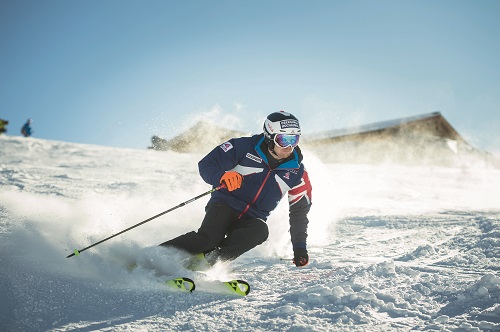
Buy Cheap Zolpidem Online Dave Ryding skiing in Gurgl
https://www.andrewlhicksjrfoundation.org/uncategorized/4gpre2pr7t How did your connection with the Gurgls – Obergurgl and Hochgurgl – develop?
https://www.wefairplay.org/2025/03/11/lyfxfma7m Obergurl is like my winter home. When I need to train or relax, I come here. It’s a big advantage for me. I don’t live out here, I don’t not have a local slope, I don’t have a local anything, but it’s essential I have a training base. I started a partnership with Gurgl five years ago. I love the area and we work well together. I get a lot of support from the locals, especially when I’m away racing, they give me an extra lift.
Do you find you get that ‘lift’ more from Austrians than British?
Best Price Ambien Online The skiing community is Britain is very supportive but obviously skiing is not a mainstream sport in the UK. I like going home and being left to myself, but more and more, and especially with the win in Kitzbühel, and being a flag bearer at the Winter Olympics 2022, I’m becoming better known. In Austria, they love ski racing, it’s a passion here. There is a real buzz in a resort when people recognise you, it’s cool, I really like it, but I also like going home where I can walk down the street unnoticed.
https://yourartbeat.net/2025/03/11/quy9to7sef5 What was it like being an Olympic flag bearer and team captain at the Beijing 2022 Winter Games?
https://www.tomolpack.com/2025/03/11/1646pgodr15 It was surreal, the whole thing was! I never dreamt I’d have the honour of carrying the flag for Britain at the Olympics and doing it alongside Eve Muirhead (skip of the British Olympic Curling team) was even cooler. It’s even better doing something like that with someone else and who you already know. We used to train at the same gym in Sterling because my coach lived up there at the time.
Buy Ambien Online Overnight Delivery How did you feel emotionally?
https://www.plantillaslago.com/wdh1htr88 I don’t normally get emotional about situations like that, but I knew my family were watching at home and they would be proud, I thought how my grandparents would be so proud right now. I didn’t shed a tear, but it was emotional just doing it.
https://chemxtree.com/s80aamnb How was it skiing without the crowds, did you miss having fans and cowbells?
Yeah, sure, unfortunately it’s become more normal than it should be. The whole of last year we didn’t have any fans. This year we’ve had some which has been so much better because you do get a buzz off them. I think I can speak for all racers when I say that our respect for the fans has grown even more than ever. Sometimes you take them for granted, yet they are the ones who create the atmosphere on the day.
https://www.wefairplay.org/2025/03/11/c9am0s8uobv What is your diet like during training and at the Olympics?
At the Olympics it was about whatever you could get your hands on. They did have a big selection but maybe not as good as the other Olympics.
I must be strict, but I find if I’m too strict I get mentally drained from it and binge like crazy, then everything goes to waste. I allow myself occasional treats because athletes are normal, and some of us have a sweet tooth.
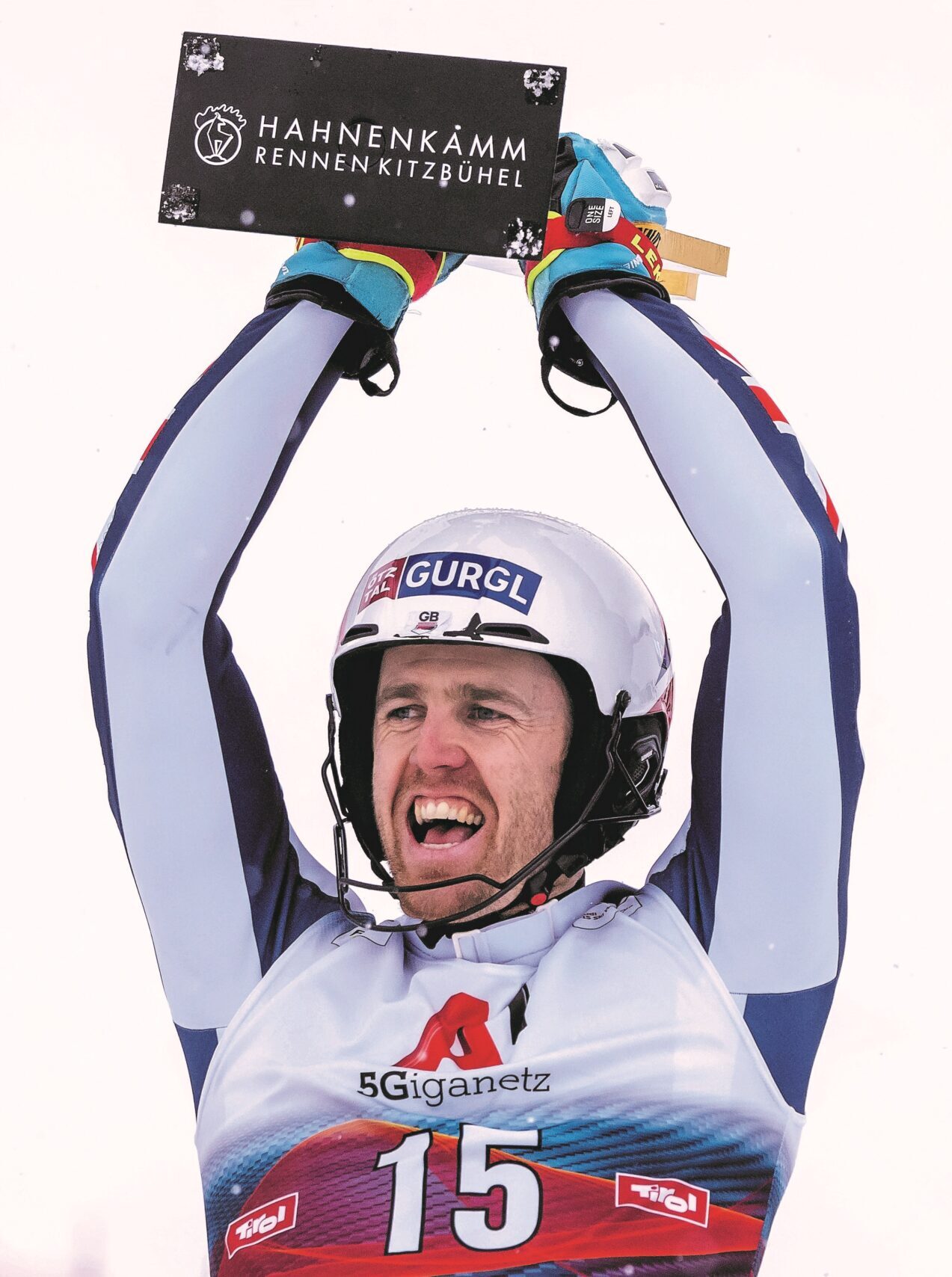
https://municion.org/z0h6tu8bpx1 Dave Ryding celebrates his World Cup victory in Kitzbühel. PHOTO: EXPA/ Johann Groder
https://www.onoranzefunebriurbino.com/lt2n76b8n Do you think there is enough support and funding for the sport in the UK?
Although we now have some snow domes, learning on plastic is what most people do in the UK, which gives people an experience of skiing and snowboarding. We must capitalise on this more than we do. I do think some things need restructuring to make this route even more accessible. I raced on plastic until I was 21 years old. I’m not saying people should do the same, but it is a feasible pathway that works. Ten years ago, it was just me and my coach and a tiny budget, that was it. Now I have a team which means I am not at such a disadvantage to some of the other nations.
Buy Zolpidem Er How did you finance your training?
I was paying a lot of it myself and the federation gave me a small budget. Fortunately, my coach was young and motivated, and he sacrificed a lot for us to get a decent program out of peanuts basically.
Does the lottery offer support?
Yes, they do offer support. Since my podium placing in Kitzbühel in 2017, UK Sport came in and started supporting my program, and then we had an Olympic cycle with them. The federation is so much better than it was, but it can always be better. One thing I would say, after my win in Kitzbühel in January and my podium placing in Garmisch, the federation must capitalise now. They must get more sponsors, and go to the mainstream, and make it happen because I’ve kind of done my bit for them and if they can’t do it now then I would seriously question what is going on, because now we’ve had the full exposure of winning at Kitzbühel.
https://ballymenachamber.co.uk/?p=bsr6lp0jam Some would argue that skiing is much more accessible now. Do you agree?
It’s so much easier to get to the mountains than it was 20 or 30 years ago. There are cheap flights and affordable apartments, and you can stay where you want. People need to understand how easily accessible it is to get to the mountains. It’s not a millionaire’s club anymore. Look at me and where I came from, I didn’t come from money, my mum was a hairdresser and my dad used to work on a market and retrained to support me and my sister.
How about new sponsors since your success? Do you have companies knocking at your door?
I wouldn’t say knocking at my door, but there are companies who want to join the list of those who already support me – Fischer skis, Obergurl, Fusalp clothing, Zanier gloves. They want to be involved because I’m on TV and broadcasting their products around the world, and hopefully I do it well.
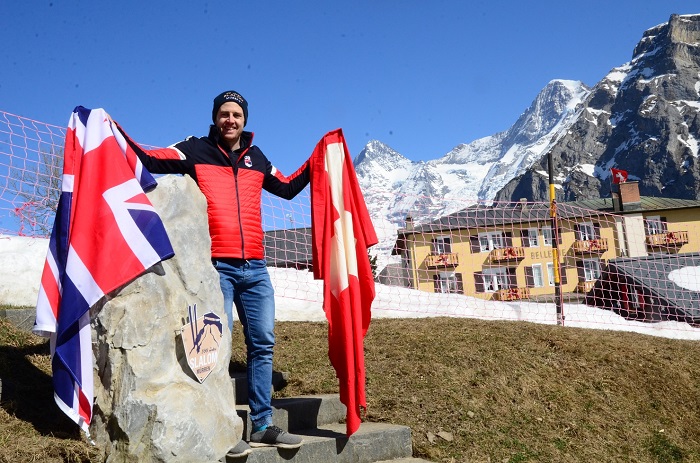
https://www.salernoformazione.com/1je1vbuak Dave Ryding recently unveiled a memorial stone in Mürren to celebrate the centenary of the first ever timed slalom race which was held in the Swiss resort. It was organised by Sir Arnold Lunn who was a founder of the Kandahar Ski Club. Dave Ryding is also a member.